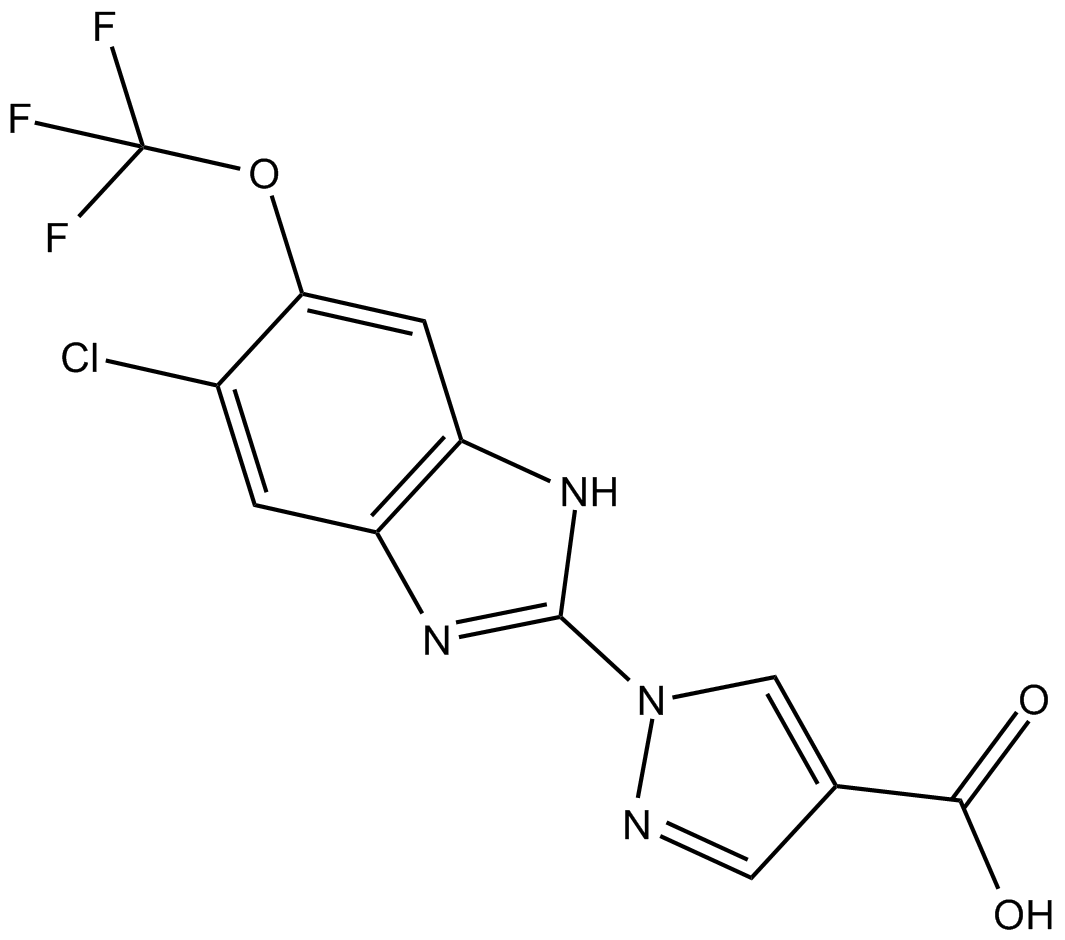JNJ-42041935 (Synonyms: HIF-PHD Inhibitor II) |
| Catalog No.GC15379 |
Hypoxia-inducible factor (HIF) prolyl hydroxylase (PHD) inhibitor
Products are for research use only. Not for human use. We do not sell to patients.

Cas No.: 1193383-09-3
Sample solution is provided at 25 µL, 10mM.
JNJ-42041935 is a potent, competitive and selective inhibitor of prolyl hydroxylase PHD; inhibits PHD1, PHD2, and PHD3 with pKi values of 7.91±0.04, 7.29 ±0.05, and 7.65±0.09, respectively.
JNJ-42041935 is the most potent inhibitor of PHD2181–417 with a pIC50 value of 7.0±0.03. JNJ-42041935 also inhibits full-length PHD1, PHD2, andPHD3 enzymes (pKi values 7.91±0.04, 7.29 ±0.05, and 7.65±0.09, respectively) [1].
JNJ-42041935 is used to compare the effect of selective inhibition of PHD to intermittent, high doses (50 μg/kg i.p.) of an exogenous erythropoietin receptor agonist in an inflammation induced anemia model in rats. JNJ-42041935 (100 μmol/kg, once a day for 14 days) is effective in reversing inflammation induced anemia, whereas erythropoietin has no effect. Administration of JNJ-42041935 (100 μmol/kg p.o.) for 5 consecutive days resulted in a 2-fold increase in reticulocytes, an increase in hemoglobin by 2.3 g/dl, and an increase in the hematocrit of 9%. Two hours after oral administration of 300 μmol/kg JNJ-42041935, the bioluminescence over the peritoneal area is increased by 2.2 ± 0.3-fold relative to luciferase-treated vehicle controls in the mouse [1].
References:
[1]. Barrett TD, et al. Pharmacological characterization of 1-(5-chloro-6-(trifluoromethoxy)-1H-benzoimidazol-2-yl)-1H-pyrazole-4-carboxylic acid (JNJ-42041935), a potent and selective hypoxia-inducible factor prolyl hydroxylase inhibitor. Mol Pharmacol. 2011
Average Rating: 5 (Based on Reviews and 22 reference(s) in Google Scholar.)
GLPBIO products are for RESEARCH USE ONLY. Please make sure your review or question is research based.
Required fields are marked with *




















